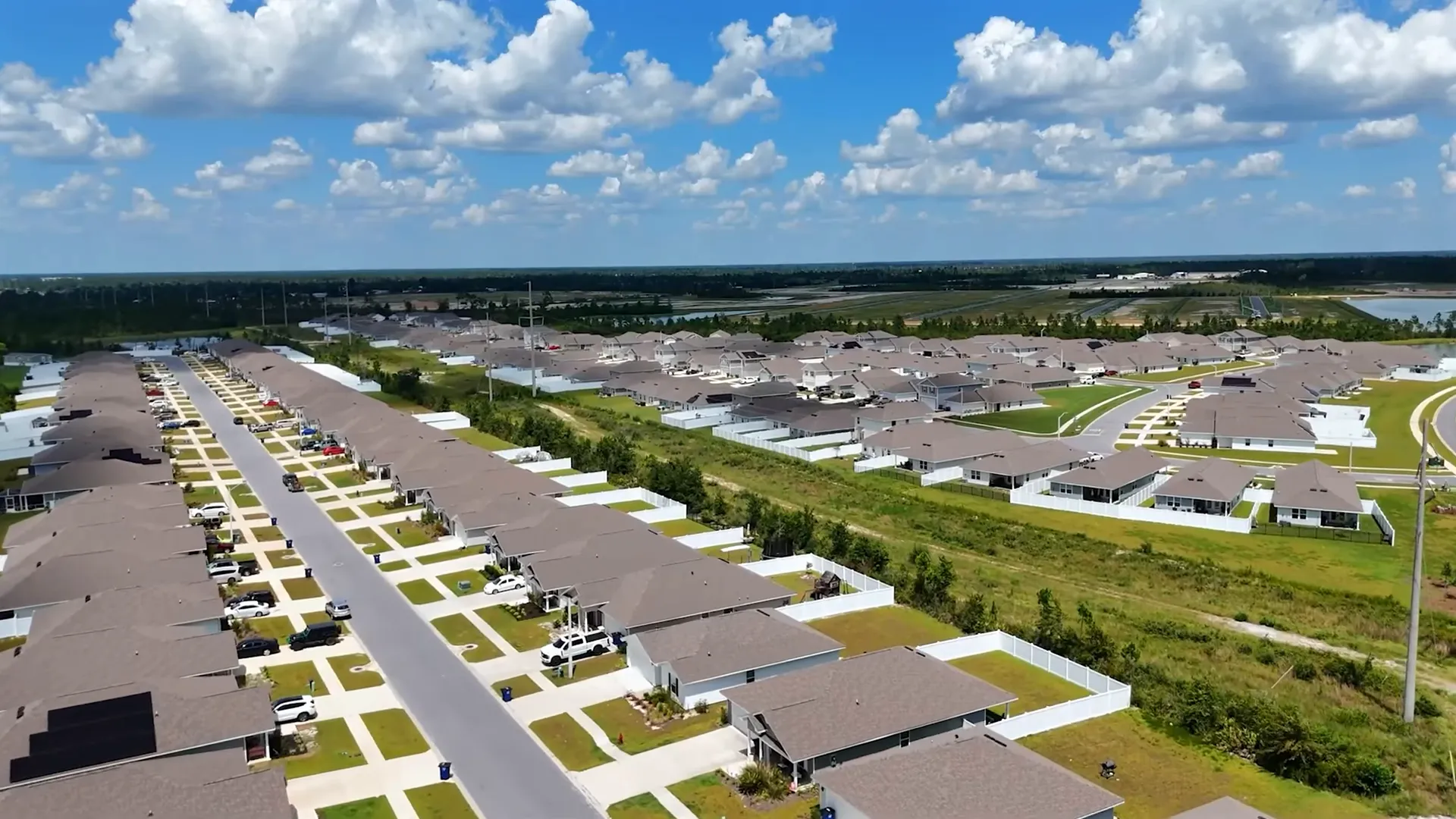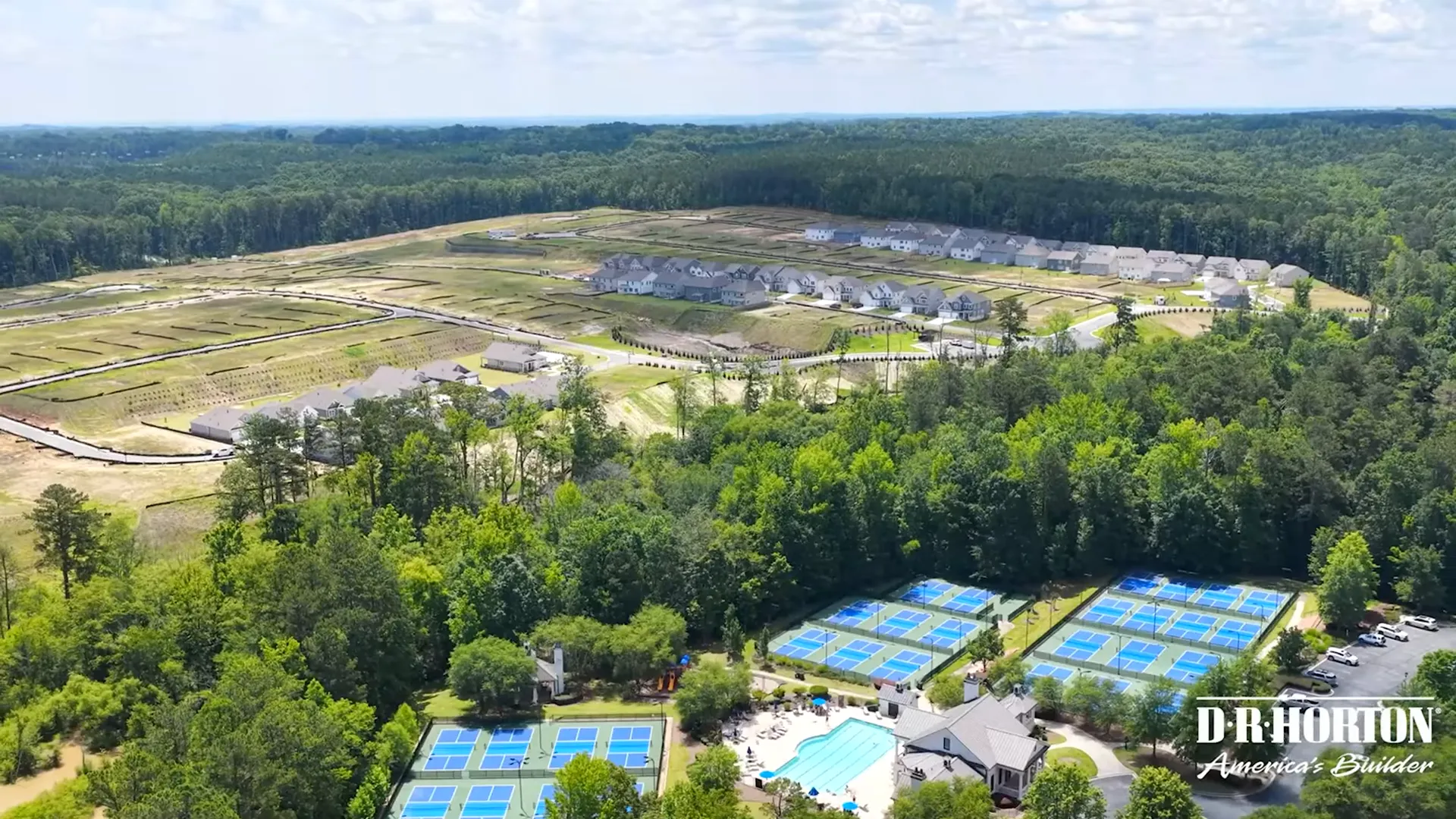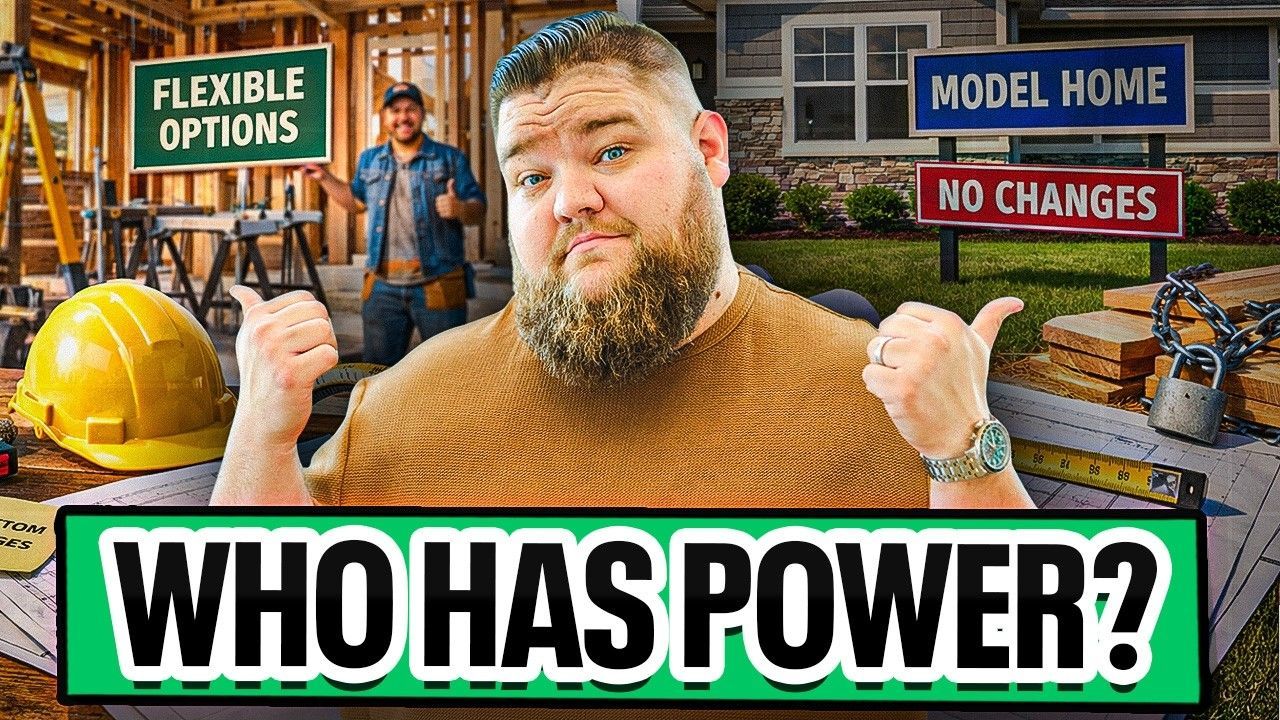Warren Buffett Bets $1B on New Homes in DFW — Here’s What It Means for Buyers
If you follow housing headlines, you probably saw the SEC filings: Berkshire Hathaway put nearly a billion dollars into big national builders. I broke that news down in a recent video and walked through seven theories about why Berkshire chose Lennar and D.R. Horton. My name is Zak Schmidt, and I work with buyers and sellers focused on new construction homes in DFW. In this article I’ll expand on those seven theories, explain what each could mean for the Dallas–Fort Worth market, and give practical advice for anyone shopping for new construction homes in DFW right now.
Table of Contents
- Context: Berkshire Hathaway’s $1B Bet
- Theory 1: Macro Play — Betting on Falling Interest Rates
- Theory 2: Betting on Institutional Ownership and Build-to-Rent
- Theory 3: Vertical and Volume Integration — Control the Starter Supply
- Theory 4: Balance-Sheet Play — Survival of the Biggest
- Theory 5: Hedging Inflation — Parking Capital in Land
- Theory 6: Political Tailwinds — Subsidies and Policy Changes
- Theory 7: Psychology — Be Greedy When Others Are Fearful
- Is Berkshire Making One Big Play—or Many?
- What This Means for Buyers of New Construction Homes in DFW
- When D.R. Horton and Lennar Make Sense
- How I Help Buyers Navigate New Construction Homes in DFW
- Outlook: Where to Find Deals as We Head Into Next Year
- Conclusion
- FAQs About New Construction Homes in DFW
Context: Berkshire Hathaway’s $1B Bet
First—let’s get the facts straight. Over the last few weeks, Berkshire Hathaway recorded a sizeable purchase: roughly $800 million in Lennar stock and about $190 million in D.R. Horton. That’s not a casual moonshot; it’s a large strategic move that got the attention of media and people like me who work in new construction every day.
Why Lennar and D.R. Horton? They aren’t flashy boutique builders. They’re mass-market volume builders that operate at massive scale and dominate starter-home channels. If Berkshire is placing a bet, it’s on scale, distribution, and repeatable economics—not on designer finishes or one-off spec homes.
Theory 1: Macro Play — Betting on Falling Interest Rates
The simplest theory—and the one I personally hope is true—is that Berkshire is making a macro momentum bet on interest rates coming down. Interest rates are the single biggest choke point for housing activity right now. When mortgage rates are high, buyer demand for new construction (and frankly most housing) slows. Builders counter by offering incentives like closing cost assistance and rate buydowns.
Why do Lennar and D.R. Horton stand to benefit if rates fall? Two reasons. First, they move units at volume and can scale any promotion quickly. Second, both builders operate captive mortgage and title businesses (or have vertically integrated lending partners). That means they can buy down rates and front incentives at a much lower effective cost than smaller builders or retail sellers. If the Fed begins to telegraph rate cuts—even a 1% decline—those companies can aggressively convert the latent buyer demand into actual contracts.
Picture this: mortgage rates dip and first-time and move-up buyers who have been sitting on the sidelines suddenly enter the market. In regions like DFW, where population growth remains robust, that flood of demand will show up quickly. For buyers hunting new construction homes in DFW, falling rates mean more accessible monthly payments and more negotiating leverage on incentives.
Theory 2: Betting on Institutional Ownership and Build-to-Rent
Flip the coin and you get theory two: Berkshire could be preparing for the opposite outcome—rates stay stubbornly high and affordable homeownership becomes harder for a larger slice of buyers. If retail buyers can’t afford homes, institutional investors step in to buy the supply and convert it to rentals.

We’re already seeing this to a degree. Large asset managers, including BlackRock and others, have operational strategies targeting single-family rentals. Builders love bulk sales—if a builder can sell 200 homes to a single purchaser rather than 200 individual retail buyers, they minimize marketing costs and execution risk. D.R. Horton’s Express Line is almost tailor-made for institutional bulk buying: cheap, fast, repeatable. If affordability doesn’t improve, the math for build-to-rent (BTR) gets attractive.
For DFW buyers, institutional buying can be a double-edged sword. On one hand, institutional purchases can mean less retail inventory and upward pressure on rents and resale prices. On the other hand, BTR communities sometimes deliver consistent maintenance and predictable standards—benefits to renters, not buyers. If you’re planning to buy one of the new construction homes in DFW, pay attention to whether a community is marketed to retail buyers or flagged as build-to-rent.
Theory 3: Vertical and Volume Integration — Control the Starter Supply
This is where I put on a little tinfoil hat. Berkshire also owns Clayton Homes, the largest manufacturer of modular and manufactured homes in America. Combine Clayton’s manufactured home volume with strategic stakes in Lennar and D.R. Horton and you’ve got influence across nearly every entry-level housing channel: manufactured, modular, and stick-built starter homes.
If you control the lion’s share of starter-home supply, you have the ability to set baseline affordability—or at least influence how supply gets allocated across retail buyers, rental pools, and institutional investors. That’s powerful. It’s not necessarily malicious; Berkshire historically invests in boring essentials that produce long-term cash flow. But from a market perspective, this level of integration could shift where affordability lives in the system.
As someone who helps people buy new construction homes in DFW, I watch supply channels closely. Control at the entry-level can mean less competition for certain price bands and changed dynamics for first-time buyers. That could push more people into manufactured or modular options, or into higher-priced “starter” products with different long-term cost profiles.
Theory 4: Balance-Sheet Play — Survival of the Biggest
Another practical, less conspiratorial idea is that Berkshire is playing a balance-sheet game. Large builders like Lennar and D.R. Horton hold massive land banks and have the capacity to continue development even during downturns. Smaller regional builders may struggle with liquidity and get wiped out in a protracted slowdown. If that happens, the big players scoop up land, lots, and whatever distressed assets remain—often at attractive prices.

Think of it as a resilience bet: if the market stumbles, big builders have the balance sheet strength to continue operations and capture market share. If the market improves, they reap the rewards. For buyers of new construction homes in DFW, that could mean a market dominated by national builders with standardization across neighborhoods. There are pros and cons: large builders offer consistency and warranty infrastructure, but smaller builders may deliver differentiated design and more flexible negotiating on price or upgrades.
Theory 5: Hedging Inflation — Parking Capital in Land
Less glamorous but historically sound: land is a classic inflation hedge. Berkshire could be parking capital into an asset that tends to appreciate over the very long run. Land under production homes, especially in growth corridors like DFW, has intrinsic value tied to demographics, jobs, and migration trends.
Berkshire may view these builders as channels to hold real assets (lots), not just financial instruments. For local buyers, this means lots controlled by large firms might become less elastic in supply—especially in high-demand suburbs—making careful neighborhood selection more important.
Theory 6: Political Tailwinds — Subsidies and Policy Changes
Housing affordability is increasingly a political issue. If federal or state policies start incentivizing mass production of affordable homes—through tax credits, subsidies, or regulatory changes—large builders that can deliver at scale will be first to benefit.

If policy shifts toward supporting first-time homebuyer programs or production incentives, a builder with scale and land holdings could accelerate projects to capture available incentives. For buyers looking at new construction homes in DFW, this means the policy environment matters: subsidy programs can create local opportunities or new product types tailored to those incentives.
Theory 7: Psychology — Be Greedy When Others Are Fearful
Finally, a classic Berkshire/Hathaway move: buy when others are fearful. The psychology play is straightforward—markets are cyclical. Buying dominant builders during a lull is consistent with a long-term value-investing mindset. It’s possible Berkshire simply sees durable value in these companies’ long-term cash flows and land holdings, independent of short-term noise.
For local buyers of new construction homes in DFW, that psychological stance suggests the national narrative might diverge from local reality. Even if headlines sound doom-and-gloom, local demand drivers (jobs, migration, affordability relative to other metros) can produce pockets of opportunity. That’s why local context matters when you’re evaluating new construction options.
Is Berkshire Making One Big Play—or Many?
Here’s the thing: none of these theories are mutually exclusive. Berkshire could be hedging its bets across rate scenarios, institutional demand, land value, and political outcomes. The move could be a single strategic angle or a portfolio of plays designed to capture upside regardless of short-term macro surprises.
What This Means for Buyers of New Construction Homes in DFW
If you’re shopping for new construction homes in DFW, what should you actually do? Here’s a practical playbook based on the seven theories above and my frontline experience working with buyers here in Dallas–Fort Worth.
- Understand your timeline. If you can wait for rates to potentially drop, that could be the best path. If you need to move now, factor in higher rates and look for aggressive builder incentives like rate buydowns or closing cost credits.
- Know the product type. Distinguish between retail-focused neighborhoods and build-to-rent developments. BTR communities will be less likely to have investor-friendly resale options later.
- Ask about land and lot control. Where is the builder buying lots? How many phases remain? Builders with tight land control can influence supply—and therefore pricing—over long periods.
- Shop beyond headline builders. Lennar and D.R. Horton are big for a reason, but there are many regional and national builders in DFW that offer better service, higher finishes, or more flexible packages.
Where I’d Look First in DFW
From my on-the-ground work, here are production builders in DFW I regularly recommend to clients seeking value, service, and consistent quality—depending on budget and location:
- Meritage Homes — solid energy efficiency and value at entry to mid price points
- Trophy Homes — good options on the outskirts with practical floor plans
- Highland Homes — great when you can find an affordable Highland product
- Pacesetter, Bloomfield, Stonehollow, Chesmar, David Weekley, K. Hovnanian (K. Hov) — all have pockets where they deliver strong customer experiences
I’ll be candid: I’m not actively promoting Lennar or D.R. Horton as my go-to picks for every client. I’ve had clients buy D.R. Horton homes recently and, after thorough inspections and conversations, their experiences were positive—largely because they had excellent sales reps and site construction supervisors. Those human factors matter a lot.
When D.R. Horton and Lennar Make Sense
There are situations where the national builders are absolutely valid choices:
- Price point and availability — when their product fits your exact budget and timeline.
- Community amenities and location — when the builder’s neighborhoods align with commuting and lifestyle needs.
- When the on-the-ground sales and construction teams are responsive and high quality, which can mitigate some of the standard concerns about volume builders.
If you’re hunting new construction homes in DFW, don’t rule out D.R. Horton or Lennar automatically. But do your homework: inspections, warranty process, and who’s actually running the community matter just as much as the corporate name on the sign.
How I Help Buyers Navigate New Construction Homes in DFW
My team and I built tools specifically to help buyers compare builders, floor plans, and communities across DFW. If you’re overwhelmed by the number of options and the complexity of incentives—rate buydowns, seller-paid closing costs, upgrade credits—having a local guide who understands the construction process, builder reputation, and negotiation levers can be a huge advantage.
Here’s what we do for clients who are serious about new construction homes in DFW:
- Compare incentives side-by-side so you know whether a “$10k incentive” is actually better than a different offer.
- Represent you at the builder’s office so you don’t accidentally accept terms that favor the builder unnecessarily.
- Coordinate third-party inspections and follow up on punch lists through closing and warranty periods.
- Help you choose neighborhoods where resale appreciation and rental demand align with your goals.
VIEW NEW CONSTRUCTION HOMES IN DFW
Outlook: Where to Find Deals as We Head Into Next Year
Looking ahead, I believe the most likely scenario is a combination of these forces. My optimistic bet is that interest rates eventually start to come down (Theory 1). That would create a renewed wave of entry-level demand and be a strong tailwind for new construction homes in DFW. But prepare for pockets where institutional buying increases and some standardization by national builders becomes more pronounced.
Practical steps for buyers:
- Set a clear budget and know your maximum monthly payment for various rate scenarios.
- Identify two or three builders and communities you like, then compare the actual net incentives.
-
Ask local agents for recent on-the-ground experiences with sales reps and construction teams—or better yet, work with me directly. I specialize in navigating new construction, and I’ll give you the insight, representation, and guidance you need to make the best decision.
- Be ready to act if rates start to trend down—inventory moves fast when affordability lines up with demand.
Conclusion
Warren Buffett’s move into Lennar and D.R. Horton forces us to ask big-picture questions about housing supply, affordability, institutional ownership, and local market dynamics. For buyers of new construction homes in DFW, the key is context. Understand the incentives, the product type, the community’s intended buyer (retail vs. institutional), and the builder’s on-site team. National headlines can be useful signals, but you win or lose at the local level—by neighborhood, by lot, and by the details of your contract.
If you want help sorting through options for new construction homes in DFW—comparing builders, understanding incentives, or picking neighborhoods—I’d be glad to help. My team and I guide buyers through the entire process so they avoid common pitfalls and land the right house for their needs. Call or text me at 469-707-9077.
FAQs About New Construction Homes in DFW
Does Berkshire Hathaway’s investment mean prices will rise in DFW?
Not automatically. Berkshire’s move signals confidence in large builders’ long-term economics, but local price movement depends on supply, migration, job growth, and interest rates. In DFW, strong population and job growth still support demand. The immediate impact could be more aggressive builder incentives if rates fall, or more institutional buying if rates stay high.
Should I wait for rates to drop before buying a new construction home in DFW?
It depends on your timeline. If your move is flexible, waiting could improve affordability. If you have a job start date, lease ending, or family reasons, waiting may not be practical. Instead of timing the market perfectly, focus on controlling what you can: negotiating incentives, locking favorable construction-to-permanent rates (when offered), and choosing communities with strong resale prospects.
Are build-to-rent communities a bad thing for DFW buyers?
Not necessarily. Build-to-rent can reduce retail inventory and make purchase competition stiffer in some areas, but it can also lead to professionally managed rental options. For buyers, the key is recognizing whether a community is intended for retail buyers or institutional investors and making decisions accordingly.
Which builders should I prioritize when searching for new construction homes in DFW?
It depends on budget and priorities. I often recommend Meritage, Trophy, Highland, Pacesetter, Bloomfield, Stonehollow, Chesmar, David Weekley, and K. Hov in their relevant neighborhoods. Lennar and D.R. Horton can fit many buyers, but evaluate the local on-site team, warranty process, and concrete incentives before committing.
How can I compare builder incentives effectively?
Ask for a net comparison: list base price, included features, offered upgrades, lot premiums, and incentives (rate buydowns, closing costs). Translate a rate buydown into monthly payment difference to compare apples-to-apples. A local experienced agent can help you run these scenarios.
Does Clayton Homes’ presence mean manufactured homes will become more mainstream in DFW?
Clayton’s scale does make manufactured and modular homes more accessible and potentially more visible in affordability conversations. In DFW, manufactured housing remains an option in certain corridors, but zoning, lot availability, and buyer perceptions will shape adoption rates.
Got more questions about new construction homes in DFW? Reach out directly or visit my website www.zakschmidt.com —I’ll help you sort through the options and find the best path for your situation.

Zak Schmidt
From in-depth property tours and builder reviews to practical how-to guides and community insights, I make navigating the real estate process easy and enjoyable.













